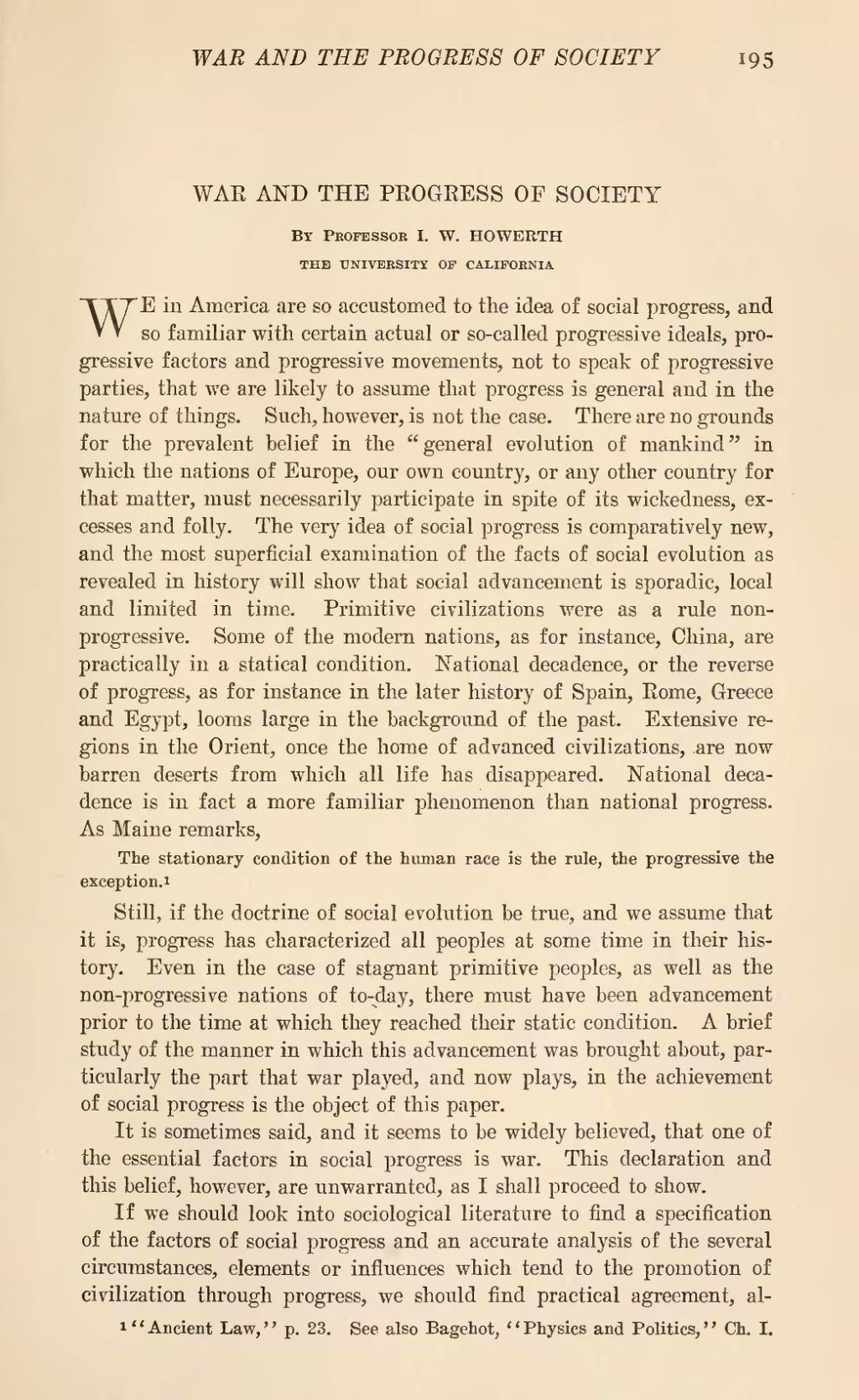| WAR AND THE PROGRESS OF SOCIETY |
By Professor I. W. HOWERTH
THE UNIVERSITY OF CALIFORNIA
WE in America are so accustomed to the idea of social progress, and so familiar with certain actual or so-called progressive ideals, progressive factors and progressive movements, not to speak of progressive parties, that we are likely to assume that progress is general and in the nature of things. Such, however, is not the case. There are no grounds for the prevalent belief in the "general evolution of mankind" in which the nations of Europe, our own country, or any other country for that matter, must necessarily participate in spite of its wickedness, excesses and folly. The very idea of social progress is comparatively new, and the most superficial examination of the facts of social evolution as revealed in history will show that social advancement is sporadic, local and limited in time. Primitive civilizations were as a rule non progressive. Some of the modern nations, as for instance, China, are practically in a statical condition. National decadence, or the reverse of progress, as for instance in the later history of Spain, Rome, Greece and Egypt, looms large in the background of the past. Extensive regions in the Orient, once the home of advanced civilizations, are now barren deserts from which all life has disappeared. National decadence is in fact a more familiar phenomenon than national progress. As Maine remarks,
Still, if the doctrine of social evolution be true, and we assume that it is, progress has characterized all peoples at some time in their history. Even in the case of stagnant primitive peoples, as well as the non-progressive nations of to-day, there must have been advancement prior to the time at which they reached their static condition. A brief study of the manner in which this advancement was brought about, particularly the part that war played, and now plays, in the achievement of social progress is the object of this paper.
It is sometimes said, and it seems to be widely believed, that one of the essential factors in social progress is war. This declaration and this belief, however, are unwarranted, as I shall proceed to show.
If we should look into sociological literature to find a specification of the factors of social progress and an accurate analysis of the several circumstances, elements or influences which tend to the promotion of civilization through progress, we should find practical agreement, al-
- ↑ "Ancient Law," p. 23. See also Bagehot, "Physics and Politics," Ch. I.

